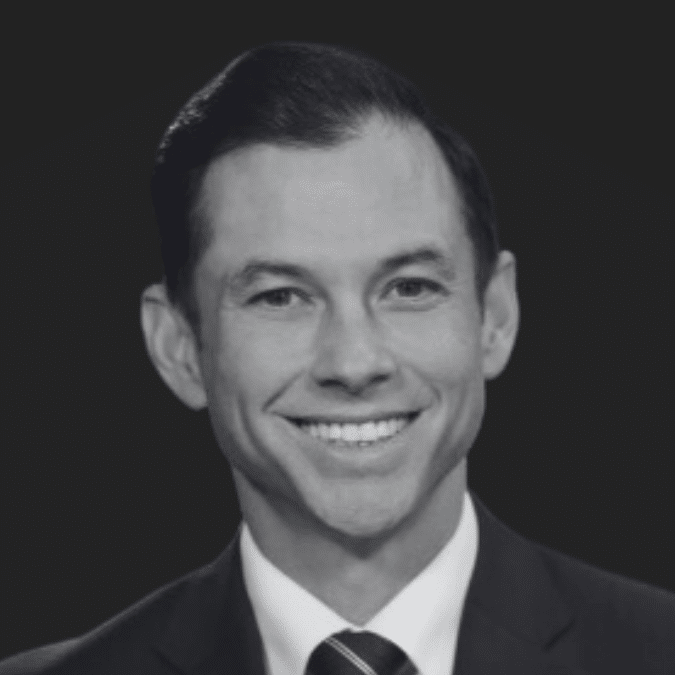January 22, 2025
Protecting Diplomacy Abroad: Insights from OSAC Executive Director Jerry Tavares
Connect with us wherever you get your podcasts
In this episode
Supervisory Special Agent and Executive Director of OSAC, Jerry Tavares, joins to share his remarkable career experiences in diplomatic security. From driving Secretary Colin Powell’s limo to managing high-risk missions in Baghdad and spearheading security modernization efforts, Jerry offers fascinating insights into protecting U.S. interests across the globe. He also highlights OSAC’s pivotal role in fostering public-private collaboration for risk management and securing American diplomacy and business.
Sign up for our monthly newsletter here.
0:00
Fred:
Hello, welcome to Ontic’s Connected Intelligence Podcast. I’m Fred Burton, Ontic’s Executive Director of Protective Intelligence. This podcast offers valuable insights and practical advice to help you navigate the complexities of modern corporate security shared by leaders and innovators in the field. Now, on to the discussion. Hi, I’m Fred Burton. Very excited today because we have Supervisory Special Agent Jerry Tavares on the Ontic Connected Intelligence Podcast. Jerry is the Executive Director of OSAC. SSA Tavares began his career as a special agent in Miami and has held leadership roles in dignitary protection and worldwide protective services. Previously, he served as division director for physical security at the Diplomatic Security Service, overseeing the protection of facilities, and modernizing the department’s risk management processes. He also has extensive overseas experience as a regional security officer in Iraq, Bahrain, Laos, and other postings. Jerry, welcome to the Ontic Connected Intelligence Podcast.
Jerry:
Thank you, Fred. I’m honored to be here with you. Appreciate you having me.
1:30
Fred:
Oh, it’s our pleasure as always. It’s always great to talk to agents from the Diplomatic Security Service. Now, I went over a little bit about your career, but walk me through that, Jerry, as for those that might not be familiar with the Diplomatic Security Service and what we do.
Jerry:
Well, thanks, Fred. As you know, DS agents serve careers in risk management communicating with the C-suite, if you will, in our case, ambassadors and dignitaries, and we manage security operations to enable the mission in every threat environment, culture, and all around the globe. It’s been an honor serving. I was lucky to start out as a DS agent after four years serving in the Marine Corps. Thank you.
Fred:
Thank you for your service, sir.
Jerry:
Thank you, sir. I was lucky enough. I served a year in Japan, and then I headed over to the Marine Security Guard program. And I was lucky to be selected and make it through school and served as a Marine Security Guard in Manila, Philippines, and then later on in Cairo, Egypt, where I met some really nice DS Special Agents, RSOs, that served as my mentors. And it was then when I decided that’s what I wanted to do. I started my career in DS in Miami, conducting passport and visa fraud investigations. We were able to make some arrests. I remember one or two months out of training, I was driving Secretary Colin Powell’s limo in Sofia, Bulgaria. And a month or two later, I found myself in Daharan, Saudi Arabia, enhancing security at our consulate there after the attacks on our consulate in Jeddah. Moved on from Miami, headed out to Baghdad for a year. I remember SAC Ed Moreno said, are you sure that’s what you want to do? I said, yes, sir, that’s what I want to do. So I headed out to Baghdad and immediately was put into a leadership role of managing nine teams of executive protection professionals ensuring that our diplomats go to and from the red zone, we used to call it, safely. But we were assured to make sure that we delivered the mission and ensured that these diplomats were meeting with local host country contacts to further U.S. foreign policy there. I remember being, we were pretty close friends and good colleagues with the U.S. Marshals. And they invited me one time, and I had the opportunity to sit down and witness a day of Saddam’s trial. And then just, you know, we took it for granted at the time, but our embassy was Saddam’s old palace. Living there and operating out of it, became routine, but whenever you pause for a minute and thought about the history that was, that was happening and before our own eyes was incredible. I also, it was one of the only posts, maybe the only post where the regional security office had their own air fleet. And so the RSO would send us in helicopters all around the country. I remember flying in a little bird. up to Erbil to conduct a site security survey before we started operations up there, and before we had our first regional security officer, DS Special Agent, run that mission up in Erbil. It was like flying, I used to explain it, it was like flying on a fly in a heater. It was really interesting. After Baghdad, I headed to Bogota, where I studied Spanish for six months, and I headed down to Colombia during the days of Plan Colombia, and had exposure to the full array of security operations, serving as the agent in charge for the ambassador. I remember I was lucky enough to be the AIC on the ambassador in 2008, when we went together to recover our hostages that were held for over five years by the FARC. What an experience that was, and to be able to lead those those gentlemen back to America was an honor of mine and an experience only a DS agent can say. After Bogota, I didn’t have enough. I was still ready for more, so I volunteered to go to Kabul. In Kabul, you know, I was running the physical security operation and ensuring that our facilities met the OSPB and SECA standards to the greatest ability that we could. five or six different compounds around the city. It was an interesting time. It was a time of the civilian surge. And so one of my duties and tasks that I that I was asked to take care of was to go out in outside of the embassy perimeter and secure housing to for for incoming employees, because there wasn’t enough housing at the time on the on our compounds. So I went out there and I applied what I could, right-side security on all these residences to enable the mission there during that civilian surge. I also remember one time flying in a helicopter in the middle of the night from Kabul to Bagram with Ambassador Eikenberry and General McChrystal. And we landed in Bagram in the middle of the night, and we were there for a repatriation ceremony. And to be standing on that tarmac there in Bagram with our U.S. ambassador and the general in charge of U.S. operations and honoring the fallen that were being sent home was another moment of my career a humbling moment that really set in stone the purpose of what we were doing. And that it was incredibly important that when I head back to Kabul, that I continue to ensure that our folks and our employees and our diplomats are safe and secure, but accomplishing the mission at the same time.
Fred:
Jerry, that’s simply an amazing career. Just so you know, Ed Marino and I were old friends. We were in the police academy together with Montgomery County Police. And when I got hired by DS, I talked Ed into coming over to State. So he owes me.
Jerry:
He does. Yes, he does. I owe him, though. He was an extremely great special agent in charge of the Miami field office when I was there. He’s one of those mentors that I had and examples that I had ahead of me that allowed me to kind of, you know, take some notes on some of those good things that these leaders are doing. I’m glad to see Ed Moreno still part of OSAC as well, sir.
9:16
Fred:
You touched on something that, I mean, you and I, and a lot of folks who will be watching this, certainly understand the importance of OSAC. I was around for the first OSAC, I guess I’m sad to say, but it’s lucky to be around to talk about it. Tell our audience a little bit about OSAC, and what does OSAC do?
Jerry:
OSAC is a public-private partnership that was created in 1985 by Secretary Schultz after the bombing of the Marine barracks in Beirut. Secretary Schultz was also a Marine, and so he took that to heart. And so he wanted to make sure that we had a network that brought the private, the public and private sector together so we could manage risk with much more information as OSAC provides that platform for connecting, collaborating, and sharing. So with OSAC and with this connection and our 30,000 members around the globe, in every corner of the globe, We’re able to share, we’re able to collaborate, and with all of that, we’re able to manage risk better and enable U.S. diplomacy abroad and U.S. businesses abroad.
10:42
Fred:
That’s awesome. Certainly, you know, you look back in the history of our organization and having, you know, been involved with the protection of Secretary Shultz back in the day, he certainly helped us get to where we needed to be. And Jerry, when you think of, you know, you know much better than I today, and the threat landscape is just very complex and very dynamic today. How does OSAC help multinational corporations, American companies navigate that treacherous environment that we’re in today?
Jerry:
Well, the bottom line is the number one thing and the magic of OSAC is creating that platform for networking. bringing all of our members together from every corner of the globe, whether it’s using social media, communication platforms, to enable that discussion and enable that sharing of on-the-ground information is really our bread and butter. Also, we provide analytics, we provide products, we respond quickly to inquiries from our members, and that could be everything from What are the laws of entering Laos? Because we have a business that we hope to start in Laos, for instance. And we can help coordinate that for our members. And all the way to holding snap calls, because there’s a crisis in Syria, or there’s a crisis in the Middle East or elsewhere. We’ve held numerous snap calls recently within the last two or three months. where all of our members came on and together they shared information and everybody had a much clearer picture of what was going on in that region or in that area of concern. It enabled us, the government, and our private sector partners to react appropriately.
12:42
Fred:
Yeah, you guys do a wonderful job and certainly have come a long way in the time that I’ve watched OSAC just grow. Jerry, what are OSAC Country Chapters?
Jerry:
OSAC Country Chapters is our bread and butter. It’s our ground game. It’s OSAC’s ground game. It’s where we come together in different countries physically and chat and network and make connections and share on different issues and challenges within that region or that country to enable both the public and private sector to be successful and to manage risk. You know, we have over 270 posts globally where we have, in most cases, a DS special agent there serving in some capacity, usually as a regional security officer. And that DS special agent is a co-chair, along with a private sector employee, and together they bring these networks in. They establish meetings, they establish communication avenues. It could be a WhatsApp, it could be an email distribution list, and they begin sharing and helping one another out. Because, you know, we want business, U.S. business and U.S. foreign policy to be successful abroad. Because when that happens, America wins.
14:17
Fred:
Jerry, I think it’s, what, four decades of OSAC now. And if you had to look out over the horizon, where do you see OSAC 10 years from now?
Jerry:
Well, first to look forward, you got to look back. And when I look back, I see a bunch of individuals like yourself, Fred, and our OSAC alumni who have given a ton to this partnership. And it’s the reason why the partnership is successful. So that brings us to today. So today we are embracing our past. We are embracing our alumni. We are embracing the challenges of today. We plan to continue our momentum forward, taking advantage of technology, innovating, faster ways to share information, but also remembering our roots. And what we’re good at is that networking, is that bringing everybody together on a common goal, putting all competition aside to help each other and help America win abroad. So in 10 years, I think we’re going to be as successful. I foresee OSAC using more technology. I foresee OSAC growing. I think we’re almost at 30,000 members at the moment. And I think in 10 years, we’ll be a lot like the stock market. Maybe we’ll double by then.
15:52
Fred:
Wow. Yeah, I can still see the first OSAC. So that’s an amazing goal, and I have no doubt that DS will reach that. Now, Jerry, I’m not putting you on the spot. We ask every guest this question. What does Connected Intelligence mean to you?
Jerry:
Well, Connected Intelligence, it rings a bell. It rings a bell. I would say Connected Intelligence is that intelligence that is manifested by a large group of contributors or individuals through a common network or median.
Fred:
That’s a great answer. Now, Jerry, is there anything that I haven’t asked you that you would like to say?
Jerry:
Fred, I would like to just thank you for your service. I’d like to thank you for the opportunity to chat today. And I’d like to just put one more plug in for diplomatic security, those special agents, couriers, engineers, Foreign Service National Investigators Abroad, we really do something special, don’t we? We enable diplomacy, we manage risk throughout our careers, the whole array of security operations, and I’m just very proud to be a diplomatic security agent, sir.
Fred:
Well, thank you for that. I am very proud too and feel very blessed to have spent many years with the organization, Jerry. So I thank you for what you’ve done. I thank you for what you continue to do. And thank you so much for being on the Ontic Connected Intelligence podcast today.
Jerry:
Thank you, sir. Have a nice day and let OSAC know if you need anything.
What you’ll learn
01
Tavares’ extraordinary career path in diplomatic security, including his leadership roles in high-threat environments
02
How OSAC fosters global collaboration between public and private sectors to manage complex security risks
03
Why the future of security partnerships relies on networking, innovation, and leveraging advanced technologies
More about our guest

Supervisory Special Agent Jerry Tavares is the Executive Director of OSAC. Previously, he served as Division Director for Physical Security at DSS, overseeing the protection of 25,000+ facilities across 170+ countries and modernizing the Department’s risk management processes. With extensive overseas experience as a Regional Security Officer in Iraq, Bahrain, Laos, and other postings, he also led major security initiatives, including managing a $1.3-billion security services contract for U.S. compounds in Kabul. SSA Tavares began his career as a Special Agent in Miami and has held leadership roles in dignitary protection and worldwide protective services.
Connect with Jerry



